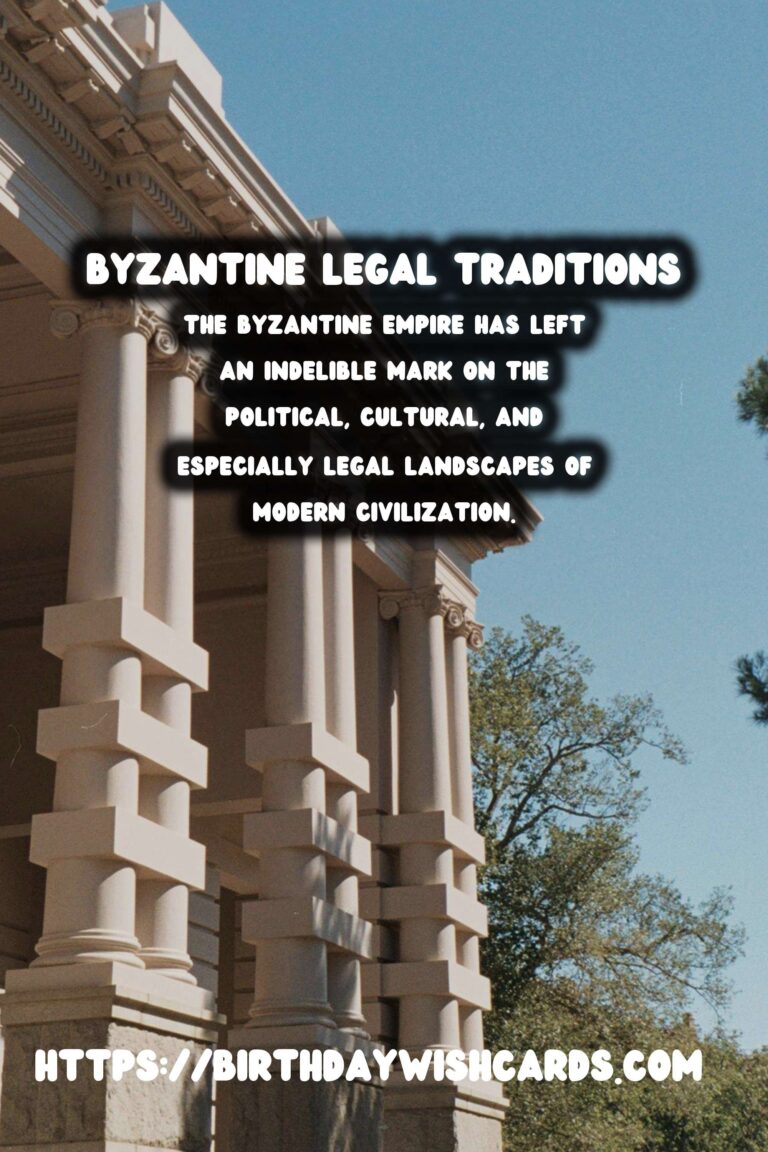
The Byzantine Empire, which lasted for more than a thousand years, has left an indelible mark on the political, cultural, and especially legal landscapes of modern civilization. Understanding this influence requires diving into its complex legal system, which was heavily based on Roman law but evolved over centuries to address the distinct needs of Byzantine society.
The Roots of Byzantine Law
At the heart of Byzantine legal tradition is Justinian’s Code, or Corpus Juris Civilis, a seminal compilation of Roman law ordered by Emperor Justinian I in the 6th century. This collection served as the foundation for Byzantine law and continued to influence European legal systems long after the empire’s decline.
Justinian’s Code was a transformative legal document, as it sought to streamline and codify centuries of Roman statutes, edicts, legal opinions, and writings of scholars. It distilled Roman legal thought into a coherent system that could be more easily adapted and applied.
The Evolution of Byzantine Legal Thought
Byzantine law did not remain static after the compilation of Justinian’s Code. Over the centuries, Byzantine jurists continued to interpret, expand, and adapt the Code to meet the challenges of a changing world. The development of law under the Byzantines demonstrated an ability to incorporate Christian principles and local customs, illustrating a balance between maintaining Roman traditions and addressing contemporary issues.
The Impact of Canon Law
One of the most significant adaptations of Byzantine law was the integration of Canon Law, which governed the ecclesiastical aspects of the empire. This body of law was crucial in regulating matters of the Christian Church and ensured that religious doctrine and practices were properly maintained throughout the empire.
Canon Law also significantly influenced the secular juridical elements within Byzantium, ushering in a unique blend of religious and civil governance that shaped legal proceedings and cultural norms.
Legal Reforms and Codifications
Several emperors after Justinian also undertook significant legal reforms to adapt to political, economic, and social changes. These reforms usually aimed to clarify or supplement existing laws, address new realities, or rectify outdated practices. Particularly noteworthy was the Ecloga, issued in 741 under the auspices of Emperor Leo III. This legal reform emphasized equity and leniency, marking a departure from some of the harsh elements of older Roman law.
The Legacy of Byzantine Legal Systems
The Byzantine Empire’s influence on law extended well beyond its borders and persisted long after its dissolution. Byzantine law illustrations in Eastern Orthodox countries and beyond became benchmarks for later legal systems, including those that evolved in Western Europe.
Many principles embedded in Roman-Byzantine law have found echoes in modern civil law traditions worldwide. Concepts of justice, legal equity, and comprehensive codification resonate in contemporary legal frameworks.
Conclusion
The Byzantine Empire played a crucial role in shaping legal thought as we know it today. Through a blend of Roman legal tradition, Christian influence, and innovative reforms, Byzantine law provided paradigms that would ripple through generations, impacting not just one society but the very foundation of legal principles around the western world.
The Byzantine Empire has left an indelible mark on the political, cultural, and especially legal landscapes of modern civilization. Justinian’s Code, or Corpus Juris Civilis, was a transformative legal document that distilled Roman legal thought into a coherent system. 









#ByzantineEmpire #LegalHistory




